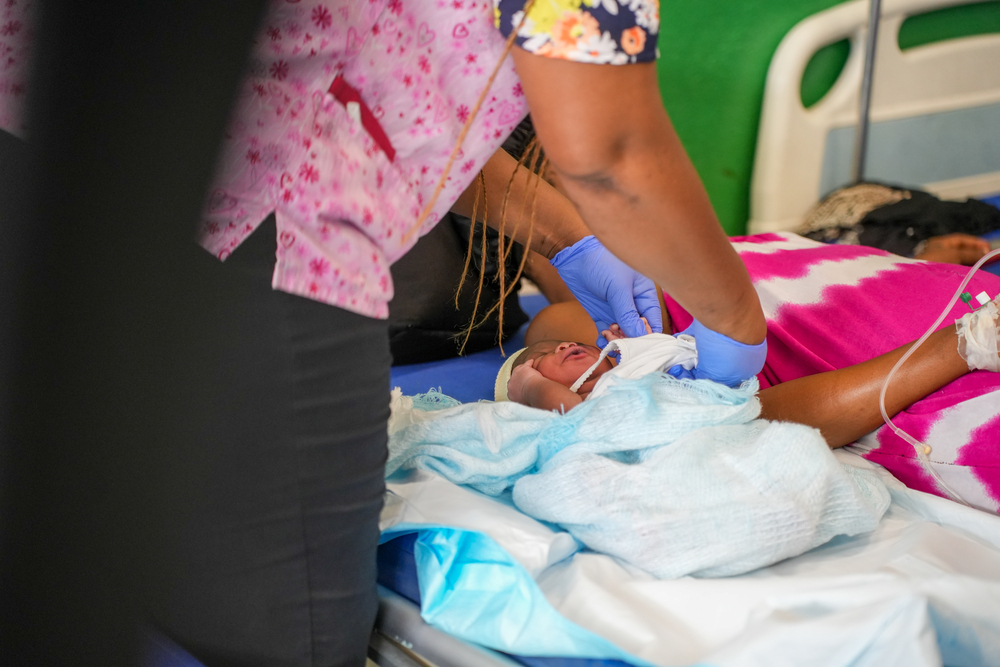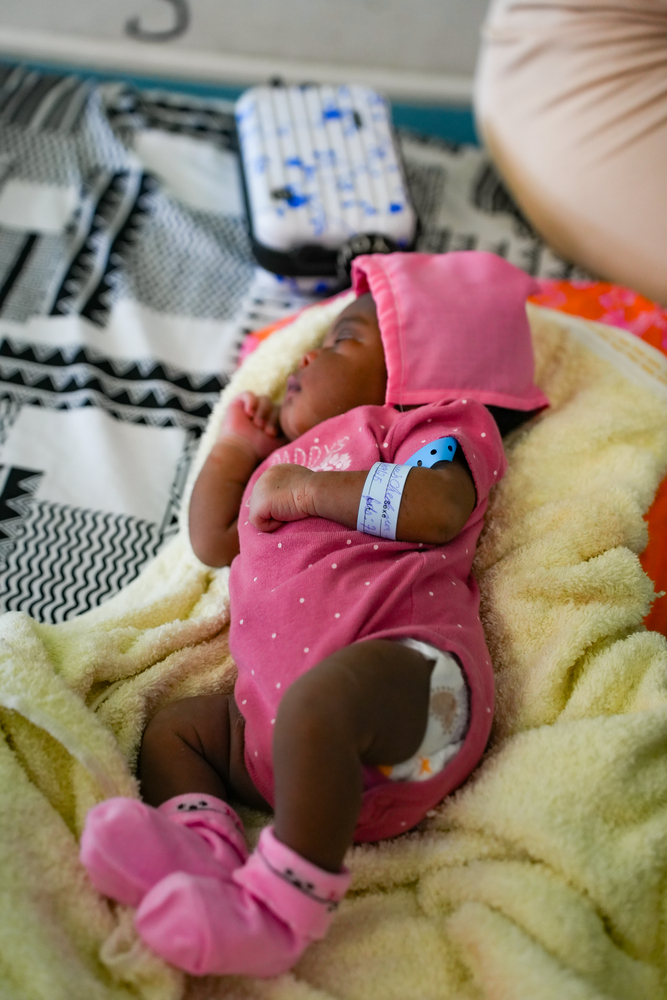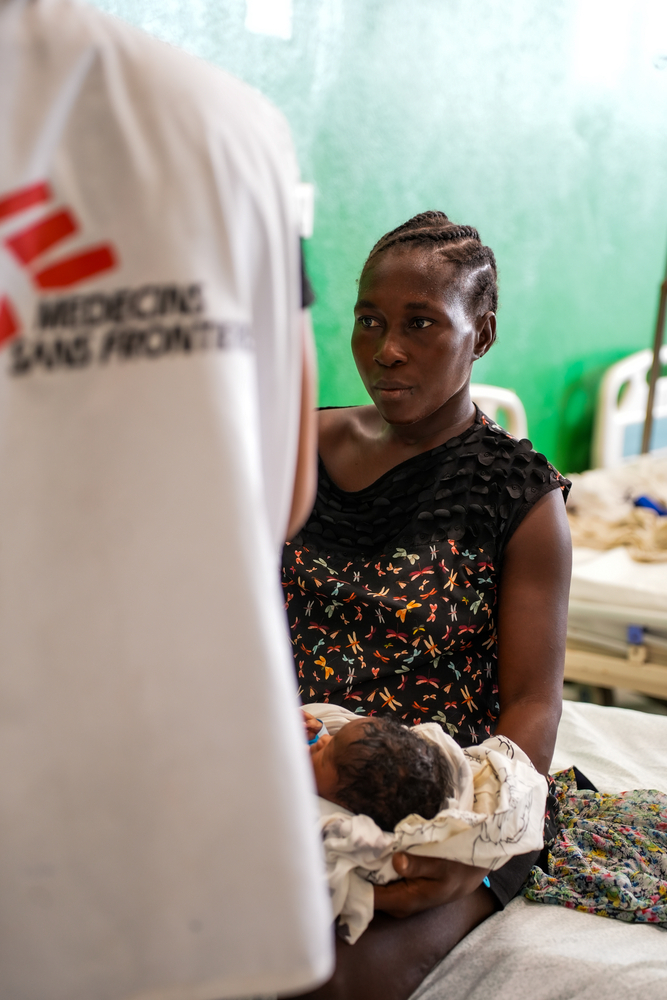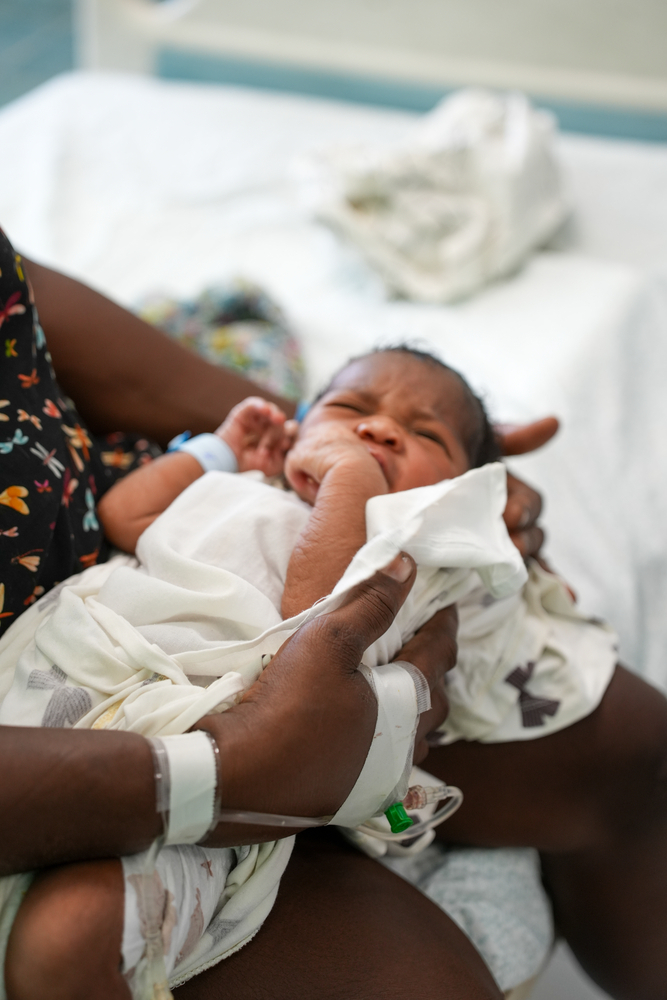Port-au-Prince, October 13, 2025 – Access to health care has become severely limited amid a broader crisis of violence and insecurity in Haiti. In response, Médecins Sans Frontières (MSF) is supporting the reopening of the Isaïe Jeanty Maternity Hospital, one of the largest in the country, which had closed during a wave of violence in early 2024. In partnership with the Ministry of Public Health and Population (MSPP), MSF co-manages the facility to ensure the provision of quality sexual and reproductive healthcare services, addressing urgent and largely unmet needs.
In Haiti, maternal and infant mortality rates remain among the highest in the Caribbean and Latin America. As violence and insecurity increased between February 2022 and April 2025, the proportion of maternal deaths in hospitals rose from 250 to 350 per 100,000 live births, and home deliveries became increasingly common.

Currently, nearly 60% of births in Port-au-Prince take place without medical care, increasing the risk of complications such as haemorrhage, infections, and hypertension—one of the leading causes of maternal mortality. Far too many women and pregnant adolescents die due to lack of medical care.
It is in this context that MSF has joined forces with the MSPP at Isaïe Jeanty Maternity Hospital. The facility gradually reopened at the end of 2024. Since then, MSF teams have been rehabilitating the structure and supporting the progressive resumption of activities to ensure safe deliveries. Essential services include prenatal and postnatal care, contraception, treatment for sexually transmitted infections, obstetric surgery, and critical care for survivors of sexual violence.
The goal is to strengthen the quality of sexual and reproductive healthcare in an area where medical services remain extremely limited and where the population is regularly exposed to clashes between armed groups and police forces. The maternity hospital also serves as an essential training ground for the next generation of obstetric healthcare professionals. Its proper functioning strengthens the capacity of the health system in Port-au-Prince and contributes to the future of maternal and reproductive health across the country.



Since the beginning of the year, the facility’s activity has steadily increased: the number of prenatal consultations rose from 56 in January to 547 in July, while deliveries increased from 10 in April to 134 in August. Nearly 220 survivors of sexual violence received care from March to September. The opening of a temporary operating room made it possible to perform 18 surgical interventions in July, 37 in August, and 45 in September. Work is ongoing to open two permanent operating theatres.
-
Related:
- Haiti
- MSF in Haiti












